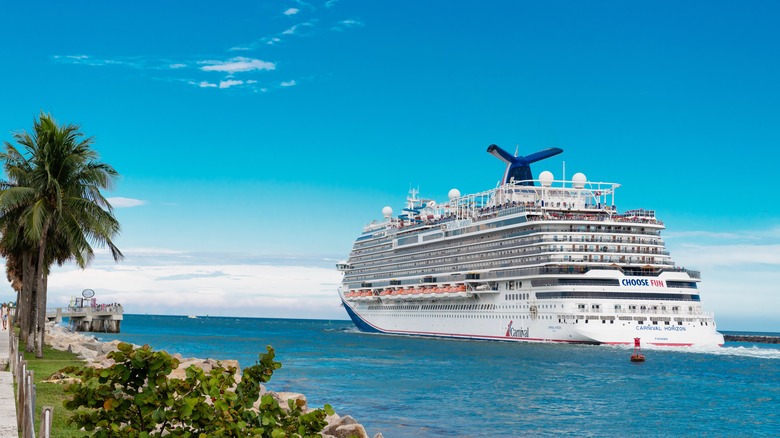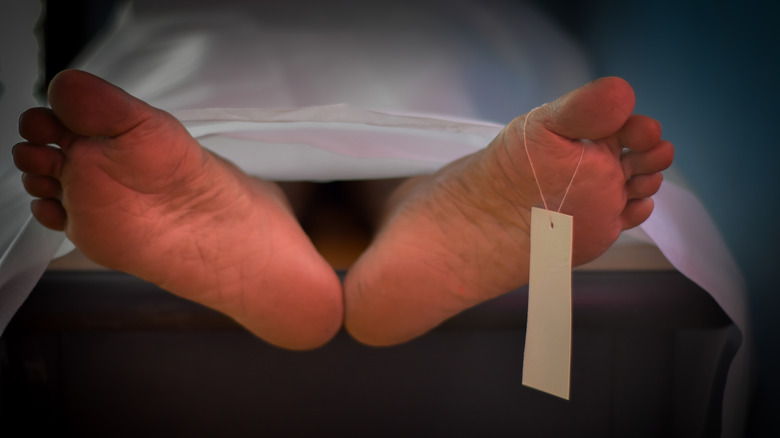The Creepy Thing That Most Cruise Ships Have Built-In (And Why)
Deep in the belly of extravagant cruise ships lies a small and cold room composed of stainless steel. It's a place most passengers don't see, and the ones that do aren't alive to talk about it — the morgue. According to Cruise Market Watch, an estimated 33.7 million people will go on a cruise by the end of 2025. Unfortunately, death doesn't go on holiday, and some travelers won't return home alive. While the cruise industry understandably doesn't promote how many passengers die on its ships every year, some research has shed light on the dark subject.
According to a study published in the International Journal of Travel Medicine and Global Health, between 2000 and 2019, there were 623 reported deaths on cruise ships, with falls, cardiac arrest, and suicide being the most common causes among passengers. Yes, people fall off cruise ships each year, and given their size, going over the rails on deck can be similar to a drop from a downtown high-rise balcony. When someone dies aboard a ship, a refrigerated morgue is a necessity, as the vessel may not be near a port at the time of death. The cold environment of a morgue, usually between 36 and 39 degrees Fahrenheit, helps preserve the remains until the ship can reach port.
It's a legal requirement, but there's not always enough room
Most ships must be equipped with a morgue and an ample supply of body bags. However, the amount of space can vary depending on the size of the vessel. Some cruise ships may only have room for up to four bodies, which could present a problem if more than that number of passengers die during the voyage. Ross A. Klein, a sociologist and author of "Cruise Ship Blues: The Underside of the Cruise Ship Industry," told the Telegraph about one fateful cruise where "the morgue was filled, and they had to start finding other places to put the bodies."
To help keep vacationers blissfully ignorant of serious situations, the crew will call out over the public address system using the NATO phonetic alphabet, such as code alpha across a cruise ship. When someone passes away, the medical team immediately reports the news to the ship's captain, additional medical staff on land are mobilized via radio, and in some cases, the Coast Guard and CDC are also notified.
Some ports are adamant that bodies are taken off the ship right away, and the crew offloads them from a low-profile exit far away from passenger view. But some ports allow the ship to finish its route, returning home with the corpse. Doing so can reduce the amount of required paperwork and allow those traveling with the now deceased passenger to continue their vacation.

